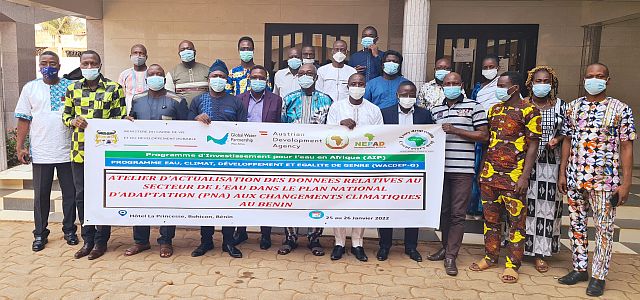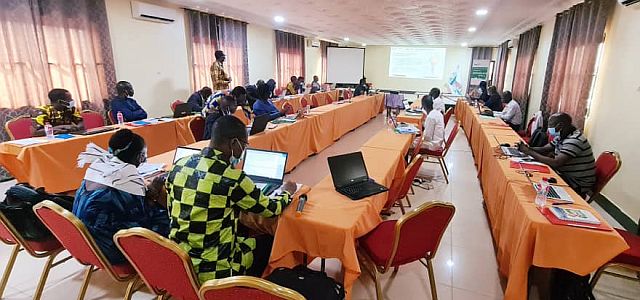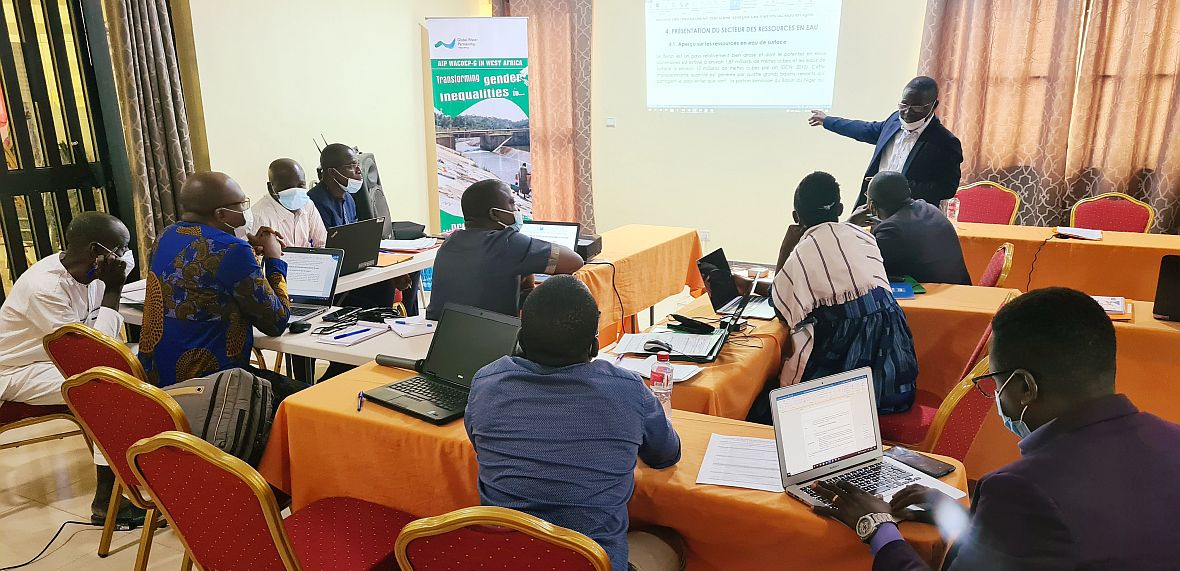Quality assurance of the multi-sectoral NAP by resource persons revealed that some data relating to the water resources sector were out of date and needed to be updated before the NAP was submitted to the Secretariat of the United Nations Framework Convention on Climate Change.
 The Directorate General of Environment and Climate (DGEC) therefore sent a request to the Water, Climate, Development and Gender Equality Programme (WACDEP-G) in Benin through the CWP Benin to assist the various stakeholders in the NAP development process to update the said data relating to the water resources sector and to improve the inclusion of the gender transformational approach in the planned adaptation measures.
The Directorate General of Environment and Climate (DGEC) therefore sent a request to the Water, Climate, Development and Gender Equality Programme (WACDEP-G) in Benin through the CWP Benin to assist the various stakeholders in the NAP development process to update the said data relating to the water resources sector and to improve the inclusion of the gender transformational approach in the planned adaptation measures.
The national workshop was held on 25 and 26 January 2022 in Bohicon to improve the quality of the NAP report by analysing and updating data on the water resources sector. It brought together thirty-six (36) participants including representatives of the Ministry of Living Environment and Sustainable Development, representatives of the Ministry of Water and Mines, representatives of the Ministry of Social Affairs and Microfinance, representatives of the Ministry of State for Development and Coordination of Government Action, representatives of technical and financial partners (UNDP, GIZ, USAID, MCDI), the consultants who carried out the vulnerability study and NAP development missions, and representatives of CWP Benin and GWP-WA.
 The workshop helped to review and update data on current and future climate variability in the water resources sector, to make proposals for improving the report on gender, endogenous adaptation knowledge and migration in the water resources sector, and to update the list of obstacles and gaps identified at the political and institutional levels of water resources governance and to formulate the related recommendations.
The workshop helped to review and update data on current and future climate variability in the water resources sector, to make proposals for improving the report on gender, endogenous adaptation knowledge and migration in the water resources sector, and to update the list of obstacles and gaps identified at the political and institutional levels of water resources governance and to formulate the related recommendations.
